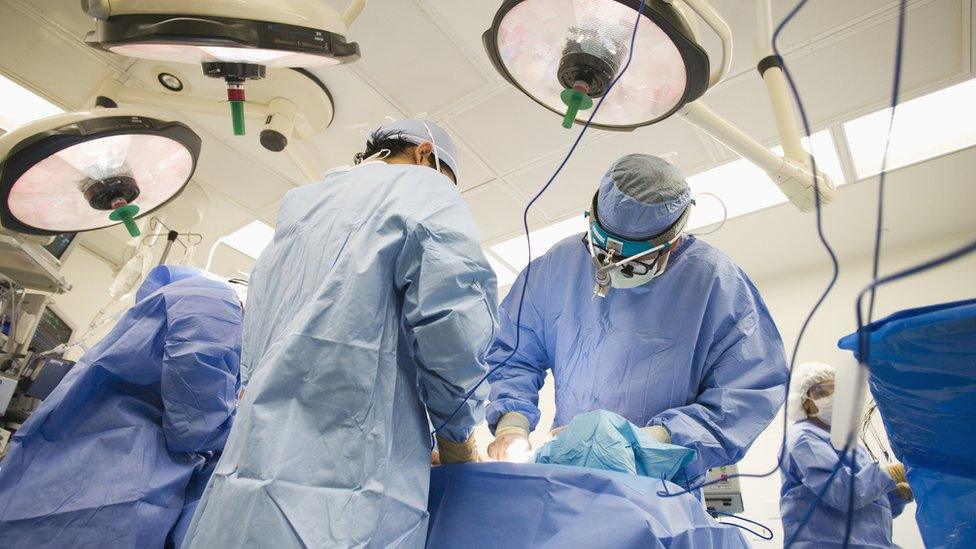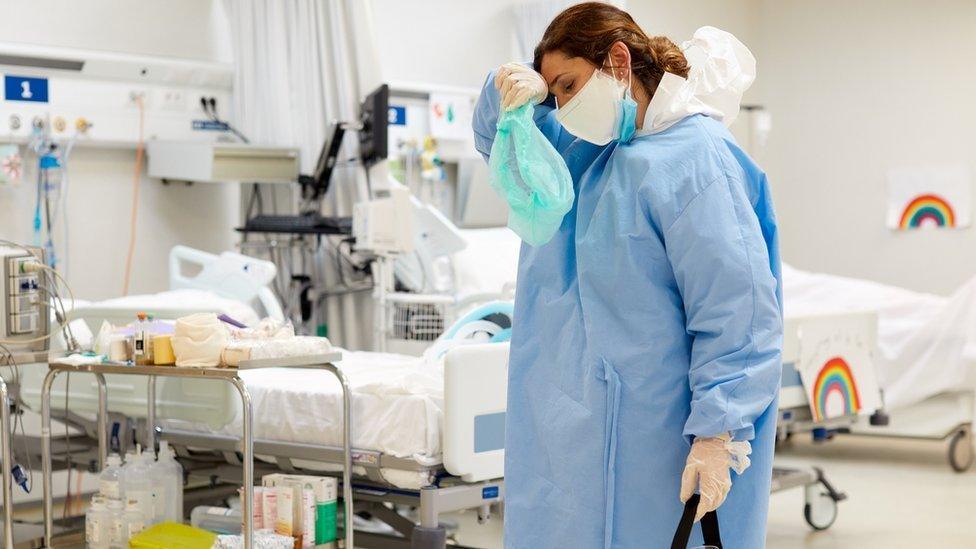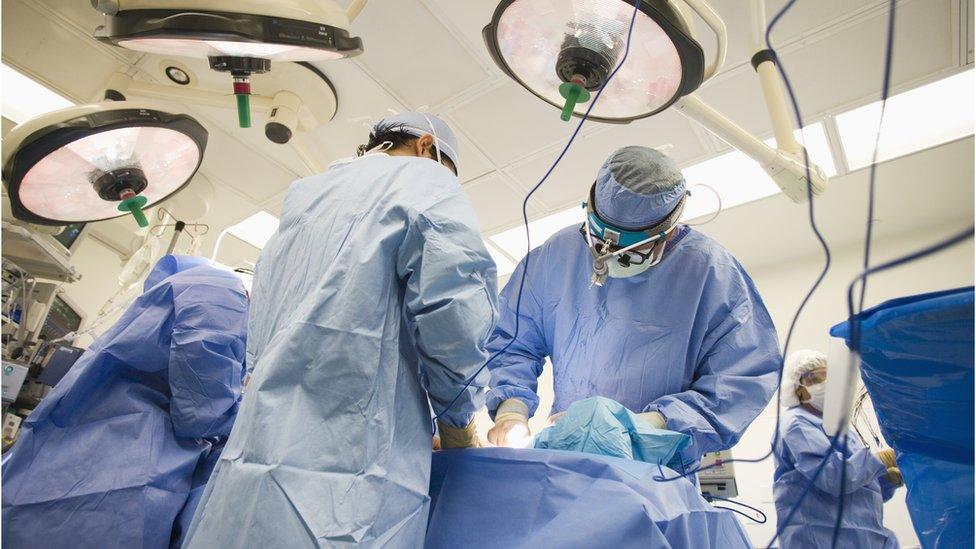Record high hospital waiting lists increase again
- Published

The number of patients on hospital waiting lists has risen again to almost 625,000, the latest statistics show.
The number waiting for an outpatient appointment or for a planned operation, like a hip replacement or cataract removal, is almost double the average before the Covid pandemic.
There has been a small improvement in the numbers waiting the longest.
However, about 8,000 patients had been waiting over two years.
The latest Public Health Scotland figures, external are for the three months to the end of December 2022.
The waiting list number is the highest since statistics were recorded in their current form about a decade ago.
The number on hospital waiting lists is equivalent to one in nine of the Scottish population.

The latest statistics showed that 480,639 patients were waiting to be seen for an outpatients appointment, a small increase on the previous quarter but up 88% on the pre-pandemic figure.
For inpatients procedures and day care, 144,045 patients were waiting to be admitted.
Again this was a small increase on the previous three months but 87% up on the period before the pandemic.
Meanwhile, the numbers waiting for one of the eight main diagnostic tests went down in the final three months of 2022.
The latest figures showed, external 148,203 patients were waiting to be seen for tests such as endoscopy, colonoscopy, cystoscopy, CT scans, and MRI scans.
This is the first decrease in waiting list size since December 2020 but it is still 69% higher than before the Covid pandemic.

More patients continue to be added to waiting lists than are being removed from them and it is hard to see the backlog being cleared any time soon.
There have been delays to National Treatment Centres that were supposed to create extra capacity and hospitals are still carrying out far fewer operations than they were before the pandemic.
Some specialties have particularly long waits. For outpatients, gastroenterology has the highest proportion waiting more than a year to see a specialist. For inpatient treatment that includes things like paediatric surgery, orthopaedics or gynaecology.
Health boards were asked by the Scottish government to prioritise those waiting the longest and set targets that no-one (in most specialties) should wait more than two years.
There has been some progress in reducing those numbers, but 8000 patients were waiting more than 104 weeks.
Those are all people living with anxiety or in pain when pre-pandemic it was unusual for people to wait more than one year for planned care.
The challenge of reducing waiting times has always been a politically contentious issue and it will continue to be one of the main priorities for the next first minister.

Health Secretary Humza Yousaf said that despite significant pressures progress was being made on NHS waiting times.
He said the number of people being seen was the highest since the start of the pandemic.
"We know that challenges remain and some people continue to wait too long for treatment, but we are determined to continue to work with NHS boards to provide support to drive improvements across our health service," he said.
Scottish Conservative health spokesman Dr Sandesh Gulhane said the backlog remained truly terrifying.
"No meaningful progress is being made in reducing Scotland's enormous waiting lists," he said.
"It is utterly shameful that well over three-quarters of a million patients are still waiting for appointments or crucial diagnostic tests.
"We know that continued delays to starting treatment only leads to further suffering for patients -and in the worst case scenarios - unnecessary deaths."
Scottish Labour health spokeswoman Jackie Baillie said: "Mr Yousaf's disastrous stewardship of our NHS has made him the worst Health Secretary since devolution.
"He has presided over sky-high wait times in A&E, chaos with delayed discharge, skyrocketing cancer wait times and an increase in both outpatient and inpatient wait times.
"He has shown absolutely no ability to solve these problems."
Related topics
- Published19 January 2023

- Published22 February 2022
